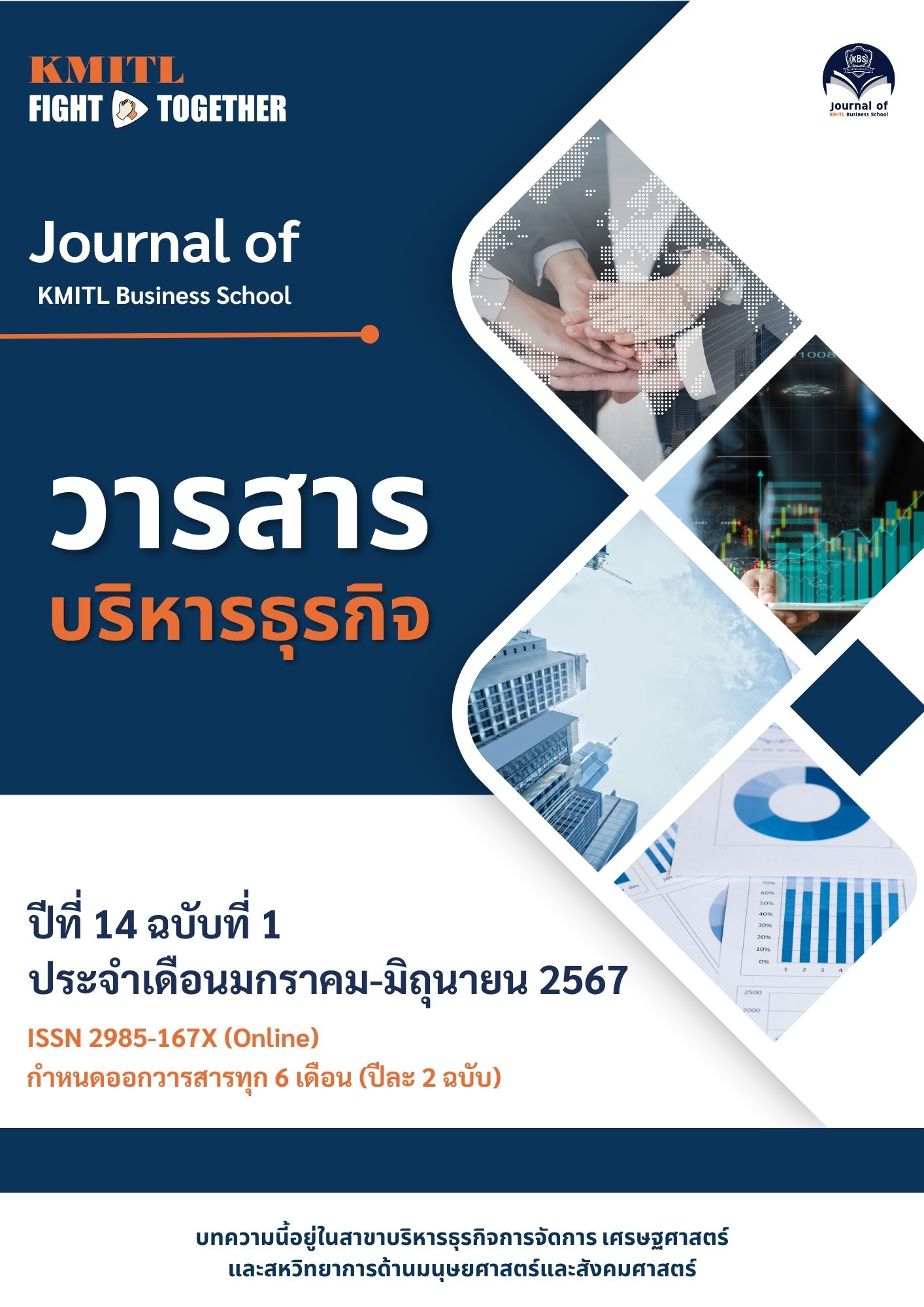Factors Affecting the Success of Wat Portal Website Services (www.watportal.com)
Main Article Content
Abstract
The objective of this research was to study and analyze the factors contributing to the success of the Wat Portal website (www.watportal.com). The study's sample comprised 384 users of the Wat Portal website who completed an online questionnaire through the website. The tools used in the study included the questionnaire, and the data were analyzed using statistical methods such as frequency, percentage, mean, standard deviation, T-test, and multiple regression analysis. The results indicated that out of the 11 hypotheses tested, 8 were accepted. The accepted hypotheses are as follows: 1) System Quality has a positive impact on User Use; 2) System Quality has a positive impact on User Satisfaction; 3) Service Quality has a positive impact on User Satisfaction; 4) User Use has a positive impact on User Satisfaction; 5) User Use has a positive impact on Net Benefits; 6) User Satisfaction has a positive impact on Net Benefits; 7) Net Benefits have a positive impact on User Use; and 8) Net Benefits have a positive impact on User Satisfaction. The researcher can use these findings to guide the development, improvement, and application of information to enhance the website's service quality and meet user needs. The factors of System Quality, User Use, User Satisfaction, and Net Benefits are shown to have a positive impact on the success of the Wat Portal website (www.watportal.com). This research can also serve as a basis for further development and improvement of website services in the future.
Article Details

This work is licensed under a Creative Commons Attribution-NonCommercial-NoDerivatives 4.0 International License.
Journal of KMITL Business School is available both online and in printed version.
**All articles or opinions presented in this issue of the Journal of KMITL Business School reflect the thoughts of their respective authors. This journal serves as an independent platform for a variety of viewpoints. Authors bear full responsibility for the content of their articles.**
**All articles published in this journal are copyrighted by KMITL Business School, King Mongkut's Institute of Technology Ladkrabang. The editorial team permits copying or using articles, but a reference to the journal is required.**
References
กิตติภาภรณ์ ประเทศ และ อ.ดร. โมไนยพล รณเวช. (2016). ความคาดหวังและพฤติกรรมการเปิด รับชมเว็บไซต์ YouTube ช่อง GMM GRAMMYGOLD OFFICIAL ของผู้รับชมในเขต กรุงเทพมหานคร. (การค้นคว้าอิสระปริญญามหาบัณฑิต). มหาวิทยาลัยธรรมศาสตร์, คณะ วารสารศาสตร์และสื่อสารมวลชน3
วรรณิกา จิตตินรากร. (2559). "การยอมรับเทคโนโลยีและพฤติกรรมผู้บริโภคออนไลน์ ที่ส่งผลต่อการตัดสินใจซื้อ สินค้าจากบริษัทขายตรงผ่านช่องทางออนไลน์." ปริญญาบริหารธุรกิจมหาบัณฑิตมหาวิทยาลัยกรุงเทพ.
ศิริลักษณ์ โรจนกิจอำนวย. (2561). "การรับรู้ความเสี่ยงและความไว้วางใจที่สงผลต่อการซื้อผ่านพาณิชย์อิเล็กทรอนิกส์ข้ามพรมแดน." วารสารจุฬาลงกรณ์ธุรกิจปริทัศน์, 40, 157: 79-99.
สัญชัย ครบอุดม และ สุธาทิพย์ สารทพลกรัง. 2558. การศึกษาความพึงพอใจของบุคลากรและนักศึกษา ที่มีต่อระบบสารสนเทศและการให้บริการสารสนเทศ (ICT) ของมหาวิทยาลัยราชภัฏบุรีรัมย์.
อัครเดช ปิ่นสุข และนิตนา ฐานิตธนกร. (2559). การยอมรับเทคโนโลยีสารสนเทศ คุณภาพการบริการอิเล็กทรอนิกส์และส่วนประสมการตลาดในมุมมองของลูกค้า ที่ส่งผลต่อความพึงพอใจ (Esatisfaction) ในการจองตั๋วภาพยนตร์ออนไลน์ผ่านระบบแอพพลิเคชั่นของผู้ใช้บริการใน จังหวัดกรุงเทพมหานคร. เอกสารนำเสนอที่ การประชุมวิชาการระดับชาติสหวิทยาการเอเชียอาคเนย์2559 ครั้งที่3. นนทบุรี: โรงแรมริชมอนด์สไตลิส คอนเวนชั่น.
อัจฉราวรรณ งามญาณ. 2554. อันเนื่องมาแต่สูตรของยามาเน่ . วารสารบริหารธุรกิจ,32(121), 41-60
เอมิกา เหมมินทร. 2557. ศึกษาพฤติกรรมการใช้และความคิดคิดเห็นเกี่ยวกับผลที่ได้จากการใช้เครือข่ายสังคมออนไลน์ (Social Media) ของประชาชนในเขตกรุงเทพมหานคร.วิทยานิพนธ์ปริญญามหาบัณฑิต สถาบันพัฒนบริหารศาสตร์
Bressolles, G., Durrieu, F., & Senecal, S. 2014. A consumer typology based on eservice quality and e-satisfaction. Retrieved from http://www.elservier.com/locate/jretconser. Dirccion y Economia de la Empresa, 23, 184-193.
Delone, W. H., & McLean, E. R. 1992. Information systems success: The quest for the dependent variable. Information Systems, 3(1), 60–95.
Delone, W. H., & McLean, E. R. 2003. The DeLone and McLean model of information systems success: A ten-year update. Information System, 19(4), 9–30.


